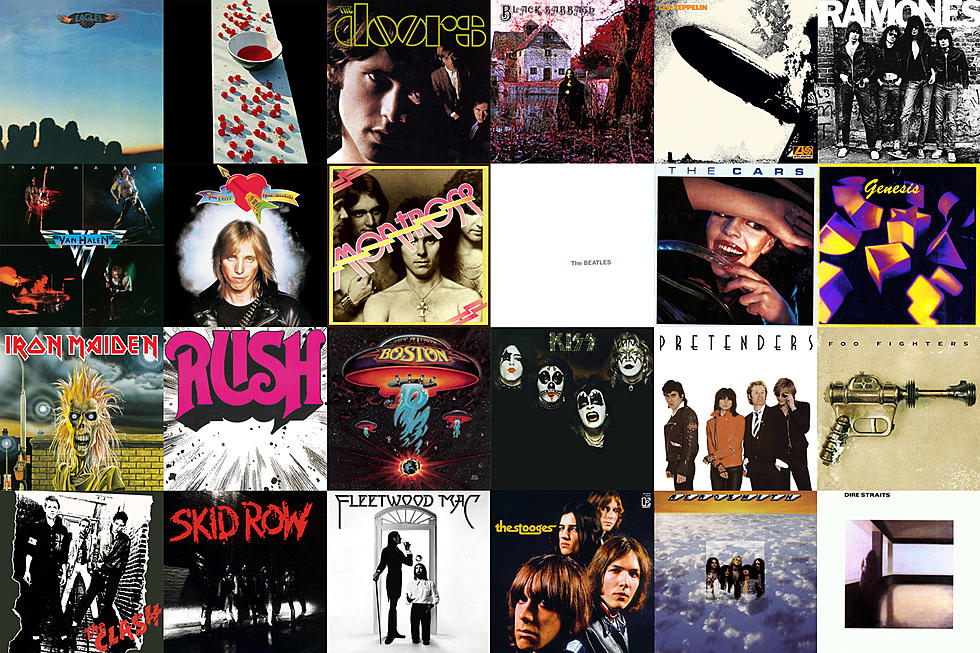
Top 30 Self-Titled Rock Albums
If you're an artist hell-bent on making a statement, you can't go wrong with naming your album after yourself.
The self-titled album is a time-honored tradition that can be employed in a variety of ways. Perhaps most commonly, artists will name their debut albums after themselves — what better way to introduce yourself to the world than by plastering your name in bold across the front of your first record?
Sometimes, these self-titled debuts enjoy such astronomical success that the artist and album become inextricably linked. "We used to joke that the first album should be called The Cars' Greatest Hits," the Cars guitarist Elliot Easton quipped in the liner notes for 1995's Just What I Needed: The Cars Anthology. "We knew that a lot of great bands fall through the cracks. But we were getting enough feedback from people we respected to know that we were on the right track."
In other instances, artists will opt for a self-titled album as a statement of reinvention. Fleetwood Mac did it (not for the first time) in 1975 to mark their first album with Stevie Nicks and Lindsey Buckingham. Genesis pulled the same move with their eponymous 1983 LP, which cemented their shift from prog to pop-rock.
And in 1991, Metallica shocked the metal world with their self-titled fifth album, colloquially known as the Black Album, which found the thrash titans adopting a more radio-friendly, mid-tempo hard rock sound. (It's not the only color-based LP on this list: The Beatles' eponymous effort is widely known as the White Album, as is Fleetwood Mac's 1975 album, to a lesser extent.)
Read up on all of these examples and more in our list of the Top 30 Self-Titled Rock Albums.
Top 30 Self-Titled Rock Albums
Gallery Credit: Bryan Rolli

